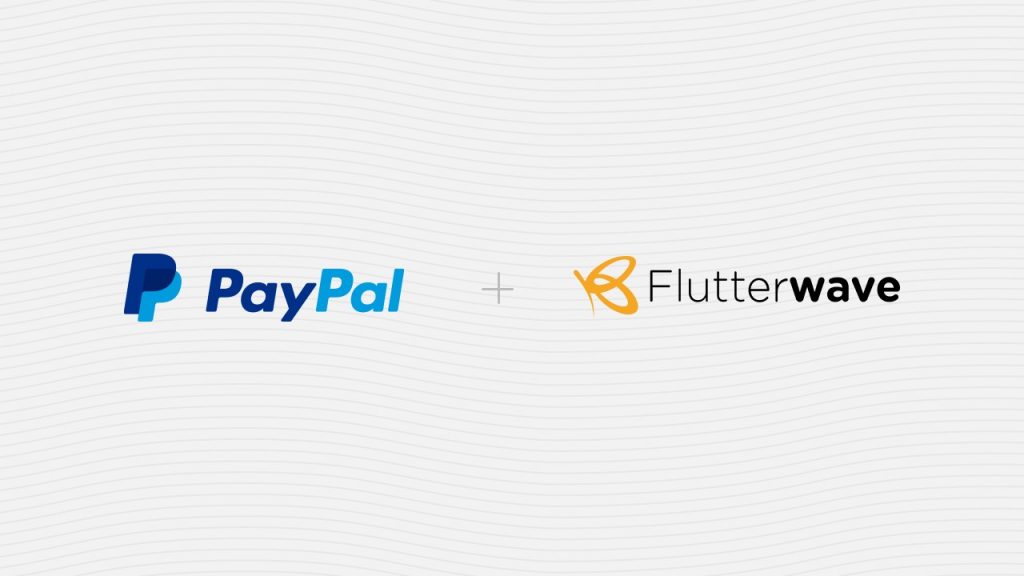It has always come across as odd that in this day businesses in a number of African countries find it almost impossible to receive money from PayPal without hitting difficulties that sometimes lead to their PayPal accounts getting closed down. Although the American company which operates an online payments system has never exactly provided specific reasons or justifications for the occurrences, observers speculate that insufficient security in the banking sector as well as inadequate regulations in the affected countries, are to blame.

This might no longer be an issue African businesses will have to face anymore. On the 15th of March 2021 African fintech company; Flutterwave announced its partnership with PayPal. This partnership will enable users of PayPal all over the world to now be able to pay merchants and businesses in Africa through the ‘Pay With PayPal’ option.
African merchants and businesses will potentially now be able to link up with over 377 million PayPal accounts across the world. This will help said merchants and businesses properly combat the difficulties presented by the majorly splintered and complicated banking and payments infrastructure on the continent.
According to the Chief Executive Officer (CEO) of Flutterwave; Olugbenga GB Agboola, this will be made possible through a Flutterwave integration with PayPal. With this Flutterwave integration businesses and merchants will be able to include PayPal as a payment option whenever they need to receive payments outside the continent of Africa.
According to Flutterwave the service which is currently available everyone who has a registered business account on Flutterwave, will be in operation worldwide and across 50 African countries. It is also looking to implement said service to all individual merchants who use its platform.

The Chief Executive Officer (CEO) of Flutterwave; Olugbenga GB Agboola while speaking to TechCrunch said, “In a nutshell, we’re bringing more than 300 million PayPal users to African businesses so they can accept payments across the continent.”
The Chief Executive Officer (CEO) added that, “Our mission at the company has always been to simplify payments for endless possibilities, and from when we started, it has always been about global payments. So despite having the largest payment infrastructure in Africa, we want to have arguably all the important payments systems in the world on our platform.”
Since PayPal began its expansion to Africa it has so far had an albeit one-way relationship with a majority of the countries on the African continent as it only allowed them to send money and not receive.
According to the PayPal website just 12 countries in African can receive and send money through the PayPal platform. They are however, able to do this to varying degrees. The 12 African countries are, Kenya, Mauritius, South Africa, Algeria, Seychelles, Egypt, Mozambique, Botswana, Morocco, Senegal, Malawi, and Lesotho.
For PayPal users in countries that are not among the special 12 and cannot receive money via PayPal, have to make use of the PayPal accounts of family members and or friends who are based in or live in countries where it is possible to receive payments via PayPal. Once done, they can then have the funds transferred to them via bank transfer or through platforms like Chipper Cash, and WorldRemit. Those alternative methods however, inevitably lead to additional transfer fees.
For Nigeria which has the largest population in Africa, it opened its doors to PayPal and just a year after (2015), it became the company’s second largest market on the African continent.

In spite of the country’s huge appetite for fintech and its quick adoption rate businesses in Nigeria still cannot receive payments from other countries through PayPal. A number of observers believe PayPal’s move to not make receiving payments in Nigeria via its platform, is as a result of the country’s longstanding battle with internet fraud a battle that is not peculiar to just Nigeria. E-commerce in Nigeria and Africa at large has continued to grow at an impressive speed regardless of the struggles.
In 2017 for example, the continent of Africa was able to attain 16.5 billion US Dollars in revenue and is projected to achieve 29 billion US Dollars in revenue by 2022. Figures like those, are what invite international companies like PayPal to want to be part of the growth in Africa if only partly through strategic partnerships like what it now has with Flutterwave.
Flutterwave uses its Application Programming Interfaces (APIs) to provide payment services to businesses and individuals across the continent of Africa. Since its creation and launch the African fintech company has partnered with Worldpay FIS to help with implementing payments in Africa, Alipay to provide and facilitate digital payments between Africa and China, and American multinational financial services; Visa for the launch of Barter.
Its new partnership with PayPal however, is easily its biggest partnership so far as African merchants and business will have even more leeway to transact with hundreds of millions of customers, receive and also make payments online, via PayPal.

Observers believe that the African fintech company; Flutterwave, will be soaking up a large portion of any risk(s) PayPal might experience once its platform is available to more businesses in Africa. The upside however, is that this will make Flutterwave the preferred option or destination for companies and corporations interested in beginning operations on the African continent.
The news of Flutterwave’s partnership with PayPal is coming just after news broke that it had acquired a Series C round of funding (led by Avenir Growth Capital and Tiger Global) to the tune of 170 million US Dollars making it a billion dollar company. Its partnership with Worldpay FIS was also announced not long after its Series B Funding was made public.
It is a straight forward prediction to say that Flutterwave has a size able number of additional projects still in the works. If its current partnerships are any indicator, whatever it has up its sleeves will most likely be an international power move as well.
It remains unknown if should PayPal decide to directly allow businesses across Africa receive payments through its platform, its partnership with Flutterwave would continue to carry on or be voided.
From all angles though, this partnership between both companies is a step in the right direction. Especially for Flutterwave which continues to show that it will continue to prioritize its over 290,000 merchants during its journey to becoming a payments company to be reckoned with on the global scene.
The Chief Executive Officer (CEO) of Flutterwave; Olugbenga GB Agboola said, “By working with PayPal, we can further strengthen our commitment to our customers and service users as we will be enabling them to transact and expand their business operations to reach new markets. PayPal’s global reach is unrivalled, and collaborating with them allows our customers to explore new markets where PayPal is embedded.”
How informative was this article? Are there any other news topics, categories, or How To topics, that you would like us to write on? Feel free to reach out to Mpesa Pay in the comment section.


